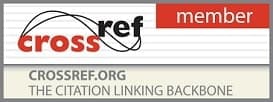
Printed Journal | Refereed Journal | Peer Reviewed Journal
2023, Vol. 5, Issue 2, Part B
A study to assess the effectiveness of planned teaching programme on knowledge regarding hypoglycemia and its complications among diabetic patients in selected hospitals at Belagavi district
Rajesh K and Praveen Parit
Background of the study: A study, titled “A study to assess the effectiveness of planned teaching programme on knowledge regarding hypoglycemia and its complications among diabetic patients in selected hospitals at Belagavi”. Diabetes mellitus is a major health problem in the world. Diabetes mellitus is commonly referred as diabetes. Diabetes is a group of metabolic disorders in which there are high blood sugar levels over a prolonged period. Symptoms of high blood sugar levels includes frequent urination, increased thirst, and increased hunger. “Prevention is better than cure” Diabetes is a progressive disorder that leads to serious health complications which are associated with increased costs to the family, community, and healthcare system. Uncontrolled diabetes leads to increased risk of vascular disease i.e. macrovascular complications like cardiovascular (CV), cerebrovascular, and peripheral artery disease and microvascular complications like diabetic retinopathy, nephropathy, and neuropathy.
Approach: The research approach adopted for this study is an evaluative approach.
Design: The research design selected for this present study was pre -experimental.
Setting: The study was conducted at BIMS Teaching Hospital, Belagavi, Karnataka.
Participants: 60 diabetic patients were selected by simple random sampling technique, as a probability sampling method. Pre-assessment: The tool was developed by preparation of knowledge questionnaires and content validity of the tool was established by taking corrections from experts. Later planned teaching programme was administered on the same day of pre assessment.
Post assessment: Knowledge questionnaire was administered after 7 days of administration of PTP to assess its effectiveness.
Results: The results of major findings indicated that, in pretest Percentage distribution of diabetic patients in pre-test reveals that out of 60 diabetic patients 80% had poor knowledge followed by 20% diabetic patients with average knowledge. No one have excellent, good and very poor knowledge regarding hypoglycaemia and its complication.
In post-test knowledge however after PTP (Post-test) 52.5% diabetic patients had excellent knowledge followed by 47.5% diabetic patients with good knowledge and no one had average, poor and very poor knowledge regarding hypoglycemia and its complication. It shows that planned teaching programme is an effective method in improving knowledge of diabetic patients.
As the calculated t value (22.9) was much higher than table ‘t’ value (2.02) the hypothesis: H1 - There is a significant difference between pretest and posttest scores of diabetic patients regarding hypoglycemia and its complication was accepted. Findings revealing the presence of significant difference between pre-test and post-test knowledge scores, hence the planned teaching programme is proved to be effective.
Interpretation & Conclusion: The study concluded that PTP on pressure sore and its prevention was an effective method for providing moderate to adequate knowledge and help students to enhance their knowledge to provide effective nursing care to clients.
Implications for clinical practices: On the basis of findings, it is recommended that a similar study may be replicated issuing a large number of respondents.
Pages : 123-126 | 207 Views | 98 Downloads

How to cite this article:
Rajesh K, Praveen Parit. A study to assess the effectiveness of planned teaching programme on knowledge regarding hypoglycemia and its complications among diabetic patients in selected hospitals at Belagavi district. Int J Adv Res Med Surg Nurs 2023;5(2):123-126. DOI: 10.33545/surgicalnursing.2023.v5.i2b.150
Related Journal Subscription





 Other Journals
Other Journals
